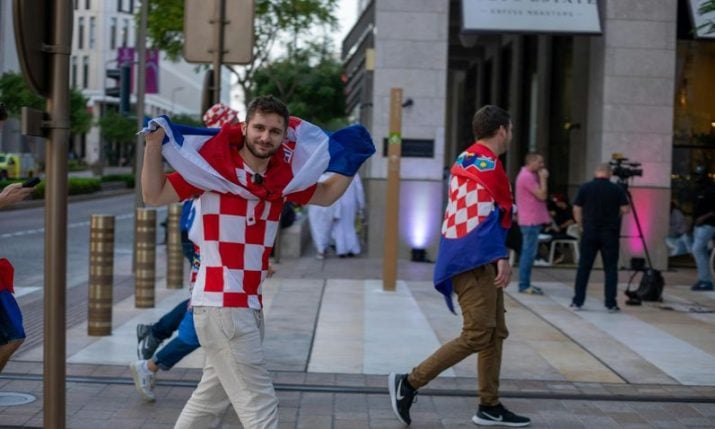Why we fell in love with Croatia as parents
- by croatiaweek
- in News
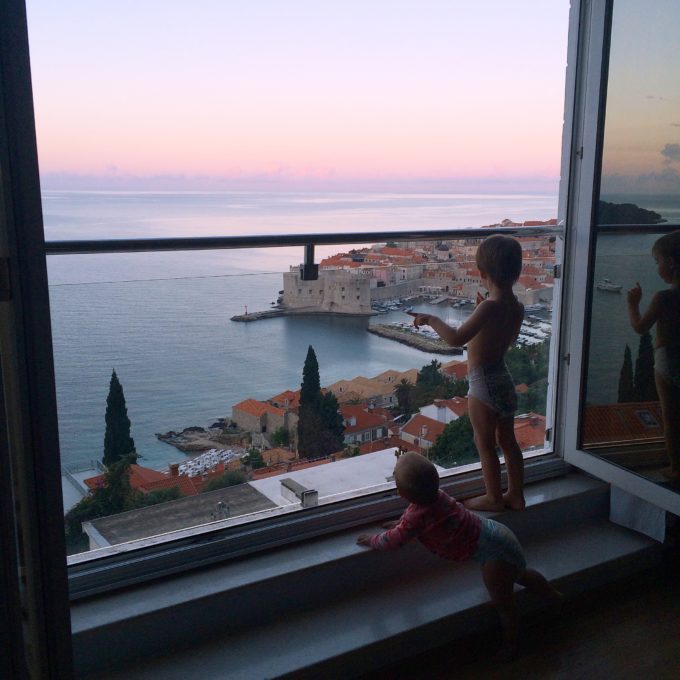
Amanda and Cameron Marshall packed up and moved to Croatia with three small kids
When Amanda and Cameron Marshall packed up and moved to the Croatian capital Zagreb with their three young children from California in the United States, they did not know what quite to expect.
Their adventure, which saw them living in Zagreb and traveling around Croatia for two years, quickly turned into a love affair.
It all started back in 2015 when Cameron was awarded an Olmsted Foundation scholarship, which immerses American military officers in a foreign culture and language, and was posted to Croatia.
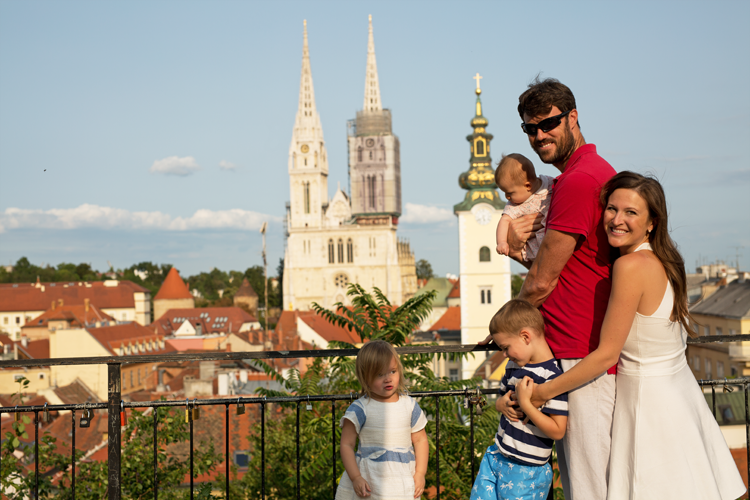
The Marshalls
Their only connection to the region was that Amanda’s grandparents who had immigrated from Sanski Most in Bosnia and Herzegovina to the United States. Whilst Cameron spent most of his time obtaining his master’s degree in history at the University of Zagreb, Amanda took care of their three young children – John Shea, Grace, and Georgia.
Amanda and her family fell in love with Croatia and she was so inspired by the land, cuisine and culture that she wrote and photographed a cookbook based on her family’s time here.
The couple, who are now back home in the United States, shared with us their thoughts on why Croatia captured their hearts and why they vow to return one day.
What were some of the reasons you think made Croatia a good place as parents with small children?
1) Croatia’s culture is incredibly family-oriented. After spending time in each region and befriending Croatians from all walks of life, it has been amazing to see how important family is to Croats. It’s not uncommon to have multiple generations living under the same roof.
It’s not uncommon for parents to live in the same region, town, or even house where their parents or relatives live (or have lived). Whenever we were out, we always saw families together. In Croatia, ages aren’t segregated. They are all intermixed, from babies to grandparents. Grandparents often care for young children while parents are at work, or are at least generally involved (and generally opinionated – I say that with a wink as my own Grandmother is from Sanski Most!)
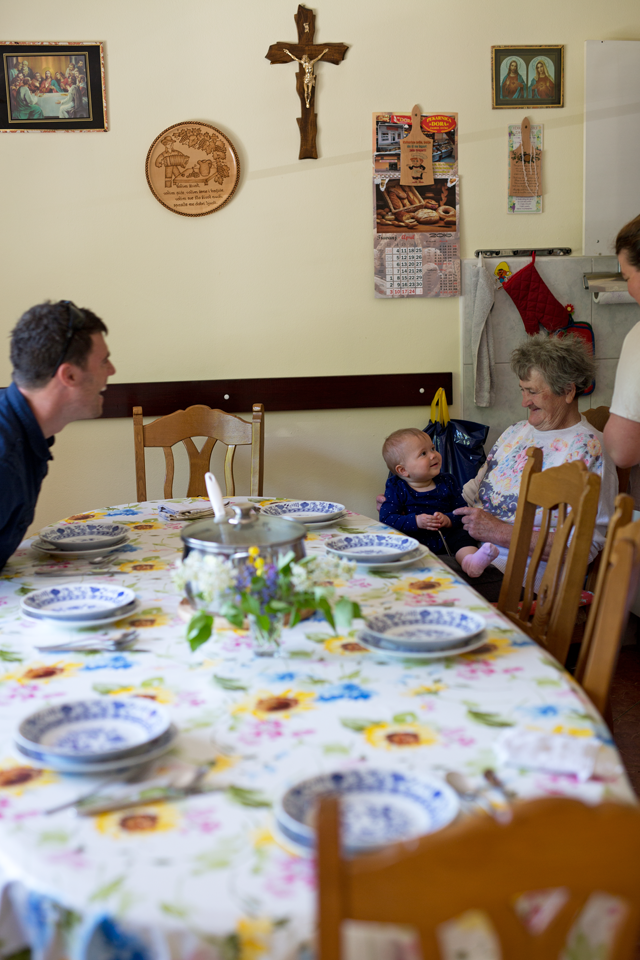
Sunday lunch
We’ve gotten to see how traditions and values – and traditional values – are passed down from one generation to another, and how it creates continuity and a sense of security. Our kids went next door to our neighbors’ house almost every day and got to experience this. Our middle-aged neighbors live with their 80-something deda (Grandpa) and care for him. They taught our four year old how to harvest and shell beans and appreciate homemade soup and štrukli. He loved to visit Deda and run around with their German shepherd in their small vineyard.

Vuina Winery
One of the best things our neighbors imparted on our kids is that life should be experienced inter-generationally. While sitting around the table together at Sunday lunch drinking homemade rakija (local brandy), we could garner wisdom from someone who is almost 90, someone in their 60s, someone in their 40s and so on.
I think this is one of the reasons families are so strong in Croatia. We literally handed our children over the fence to our neighbors, and every time they sent them home with huge chocolate Milka bars. They still call themselves our kids’ “adopted grandparents” and we text message every few days!
2) Croatian food (and wine)! We admire how Croatians’ deep connection to the land is expressed in them. We noticed right away when we moved to Zagreb that yards are used differently than they are in the States: instead of having beautifully manicured lawns, the space is often used more like a home farm.
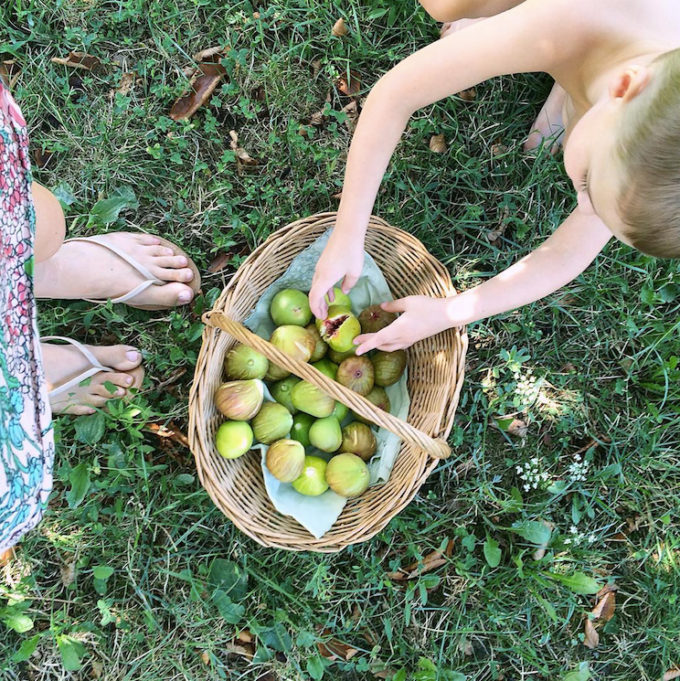
Figs
I think this differs a bit from region to region but generally, if you have any amount of land, it’s usually growing something purposeful to be eaten in season or jarred for later in the year. We got to learn so much from our neighbors about growing vines and making wine, canning, pruning fruit trees and raising chickens – all by using a small part of our yard! It’s also very common to have extended family members somewhere in the country who make their own olive oil or wine or have fruit orchards or make pršut — or you name it! — and share it.
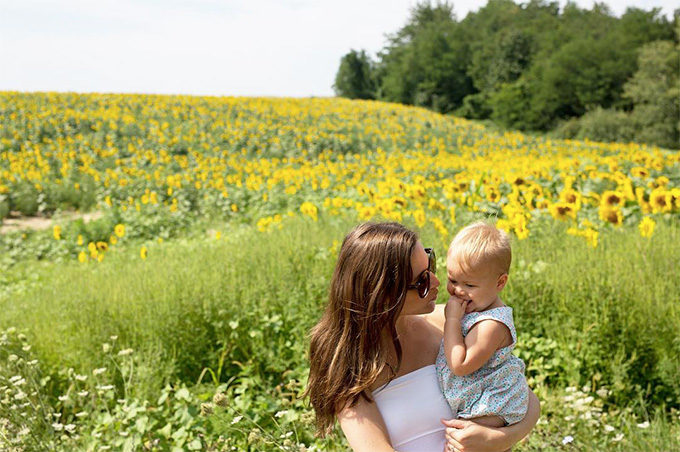
Amanda with her daughter
So, many Croatians who live in apartments are still connected to the rich soil. It’s also an economical cuisine – you eat what you grow, or what you have on hand and try not to waste any of it.
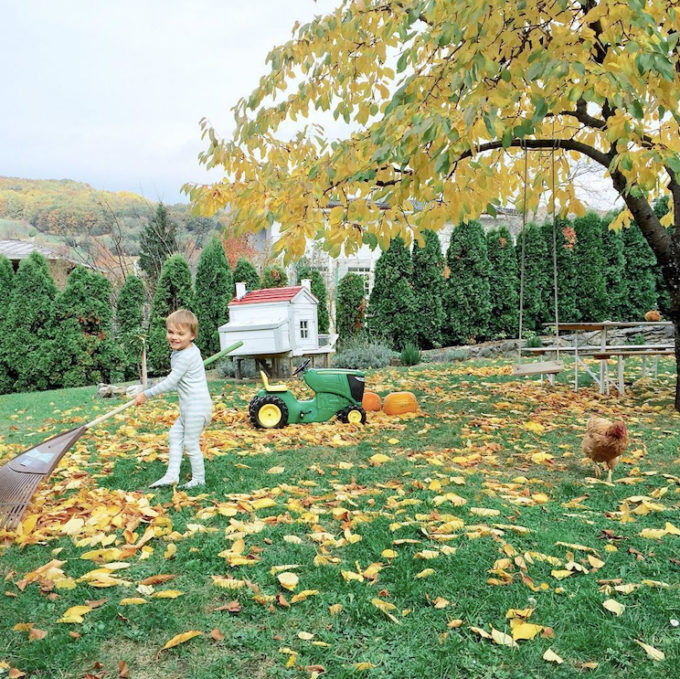
Backyard in Zagreb
3) Croatians throw awesome parties for weddings, sports events (especially soccer) and christenings (I know there’s more but these are the ones we experienced). There’s often fireworks (even after a baptism – I love that!) and all night parties — literally all night — to celebrate. I can still hear, “You’re leaving already!? Ne… Pa žasto?… you need to stay for another shot of rakija! Evo, još jednu for the road!”
We also love how joyously and unabashedly Christmas and Easter are celebrated. Advent in Zagreb is like a dream!
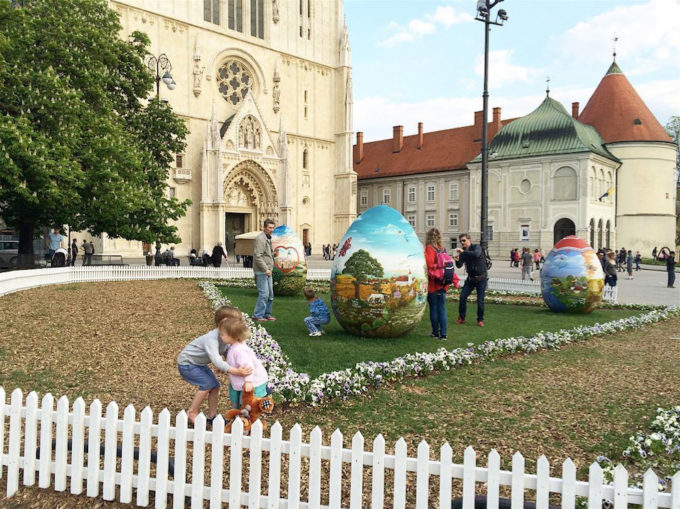
Easter time in Zagreb
We decided the day of our daughter’s baptism at the last minute, expecting that none of our friends would be able to make it. That was true for our American friends but every one of our Croatian friends we’d asked to come dropped what they were doing to be there and brought our daughter very generous gifts.
One of my husband’s friends (another university student) who has no income and lives on next to nothing, not only brought our daughter a gift but also our other children, too. To him, it’s just what you do; to us, we were blown away and will never forget his generosity.
4) We loved being surrounded by history and magnificent churches. In many ways, our little children began their education while living in Croatia. Our 4 year old became enamored with churches and especially the Zagreb Cathedral. Every time we traveled to a new region or town, the first thing he wanted to visit were the churches.
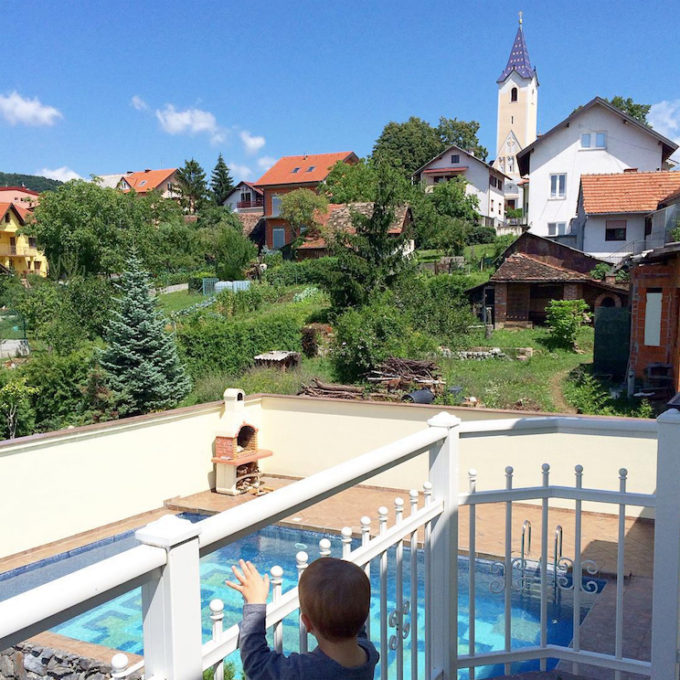
Life in Zagreb
He would sit in a pew in the back for a couple minutes and quietly take it all in and was especially excited when there was music or the bells pealed. My husband and I went to many of the free concerts throughout Zagreb during Advent and Easter.
Getting to experience Bach’s St. John’s Passion inside the Zagreb Cathedral left us in awe, as we contemplated the talent, time and detail it took both to compose a masterpiece and build such an exquisite place of worship. The beauty of the two combined was overwhelming.
What would you say the main differences were between life in Croatia and the United States?
One of the most obvious differences is found in coffee. Coffee is irrevocably tied to Croatian culture. It’s actually less about the coffee (though it is amazing) and more about meeting up with someone to chat, catch up, do business, make deals, propose, get a divorce… a friend of ours jokes that literally everything in Croatia happens over a cup of coffee. We learned that if a friend asks you to coffee, you go to coffee. If you’re too busy, it’s time to get your life together!
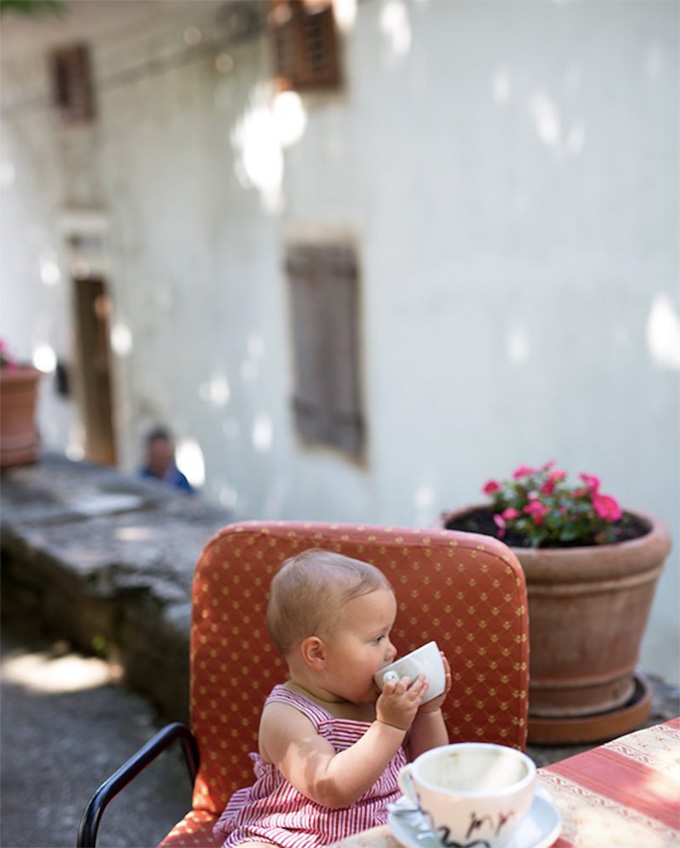
Coffee
We also noticed a big difference between our countries in the food and how we farm. In Croatia, there is imported food in the grocery stores, but overall the emphasis still seems to be on homegrown food and small farms.
In the States, the majority of our farming is industrial, on a massive scale. In Zagreb, it was very easy to have a relationship with the people who grew the produce we ate because it either came from our own yard, our neighbors, or from a few families I regularly bought from at the market. On one of our first days back in the States, I stood in Food Lion (a grocery store) with huge eyes — there were cartons of strawberries in the beginning of September!
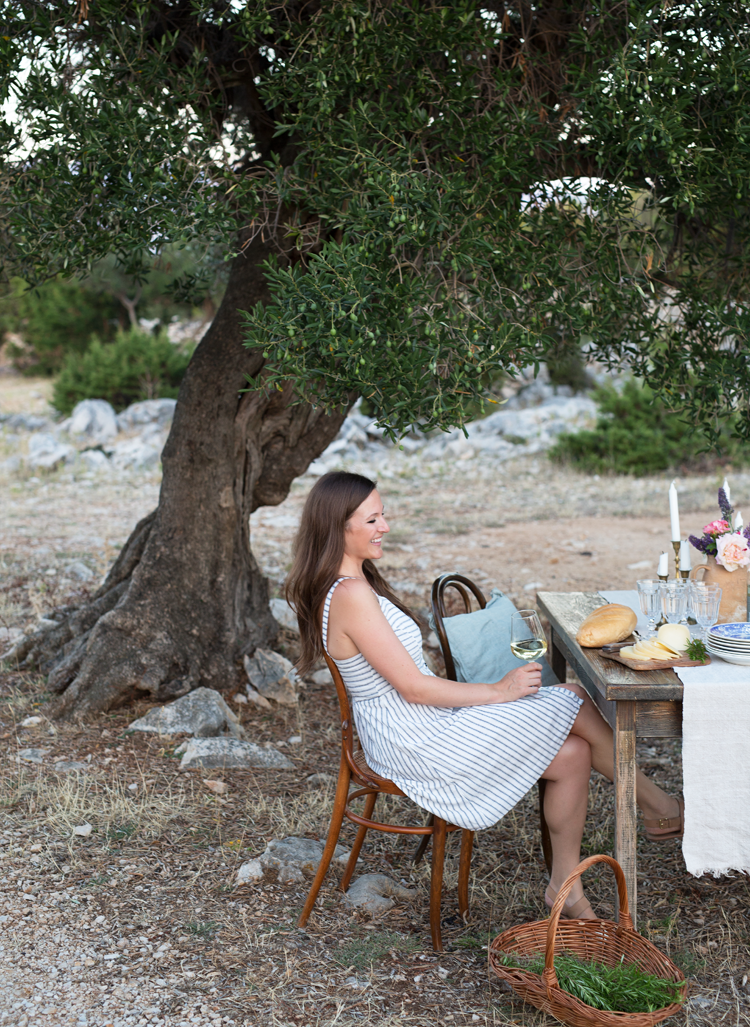
Amanda
Prior to living in Croatia, I probably wouldn’t have noticed. But the rhythm of seasons and what grows in each is now so ingrained in my mind that I have to laugh and slap myself for being a snob! Blueberries in December!? What! And what do you mean the egg yolks here aren’t a beautiful deep orange!?
Sounds like you enjoyed the food. What were some of your favorites?
My Bosnian Grandmother taught my Mom to feed our family very well and very much, and she then taught me the same. It prepared us well for living in Croatia! Our whole family loves Croatian food. My husband makes the best palačinke, but his favorite food is lamb, especially from the island of Pag.
I eat homemade ajvar (a condiment made by grilling or roasting horned red peppers and eggplant) by the jar-full! The most delicious one I ever had was made by the owners of B&B Winery Sontacchi in Kutjevo. I also love making sok od bazge (elderflower juice) in the springtime. Our neighbor Ljubica, who has a home in Zagorje, introduced us to bucnica, a type of strudel with summer squash that she makes slightly sweet. It’s mouth-watering straight out of the oven.
We adopted the Croatian way of eating soup year round — even in the scorching heat of summer because it really is the best way to start a meal! Our landlady (and dear friend) prepared fish on the grill for us while we stayed at her apartment on the coast in Bilo, washed down with graševina wine. It was one of the simplest yet best meals we ever ate in Croatia. Also, how could I not mention truffle pasta in Istria, or the cheeses from each region, or Slavonian kobasice and kulen (sausages), or Dalmatian prosciutto?!
How did you get on with the language?
After my husband was chosen as an Olmsted Scholar, the Marine Corps sent us to Monterey, California for a year of intensive language training at the Defense Language Institute. This was the year prior to moving to Zagreb. Cameron is fluent and all of his classes and assignments at the University of Zagreb were in Croatian.
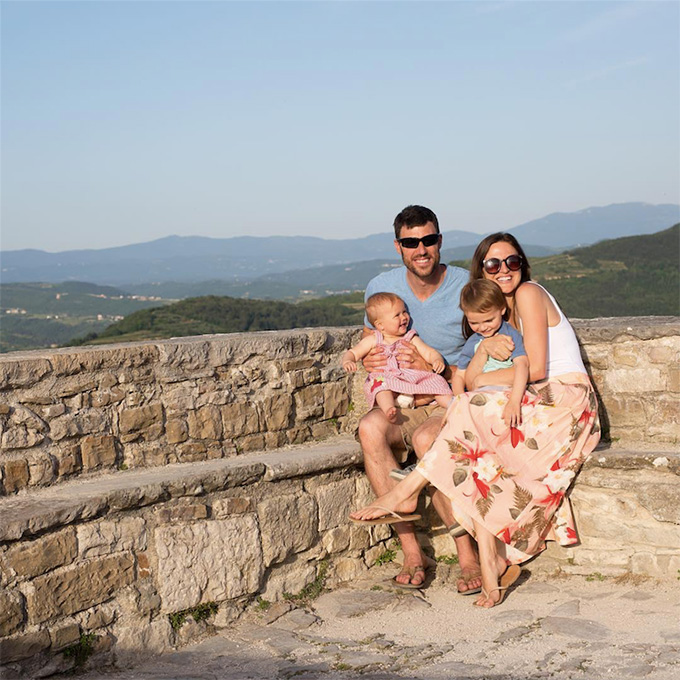
The Marshalls
I studied with a wonderful teacher, Mihaela Šego through CRO to go, though I constantly made mistakes. The first time our neighbors invited us to their farm in Zagorje, I spent the entire day accidentally calling their uncle “aunt.” I didn’t realize it until after I got home that night! Thankfully he laughed with me about it later. Our kids understand the language well, and we still yell at them, pazi! or dođi, mali!
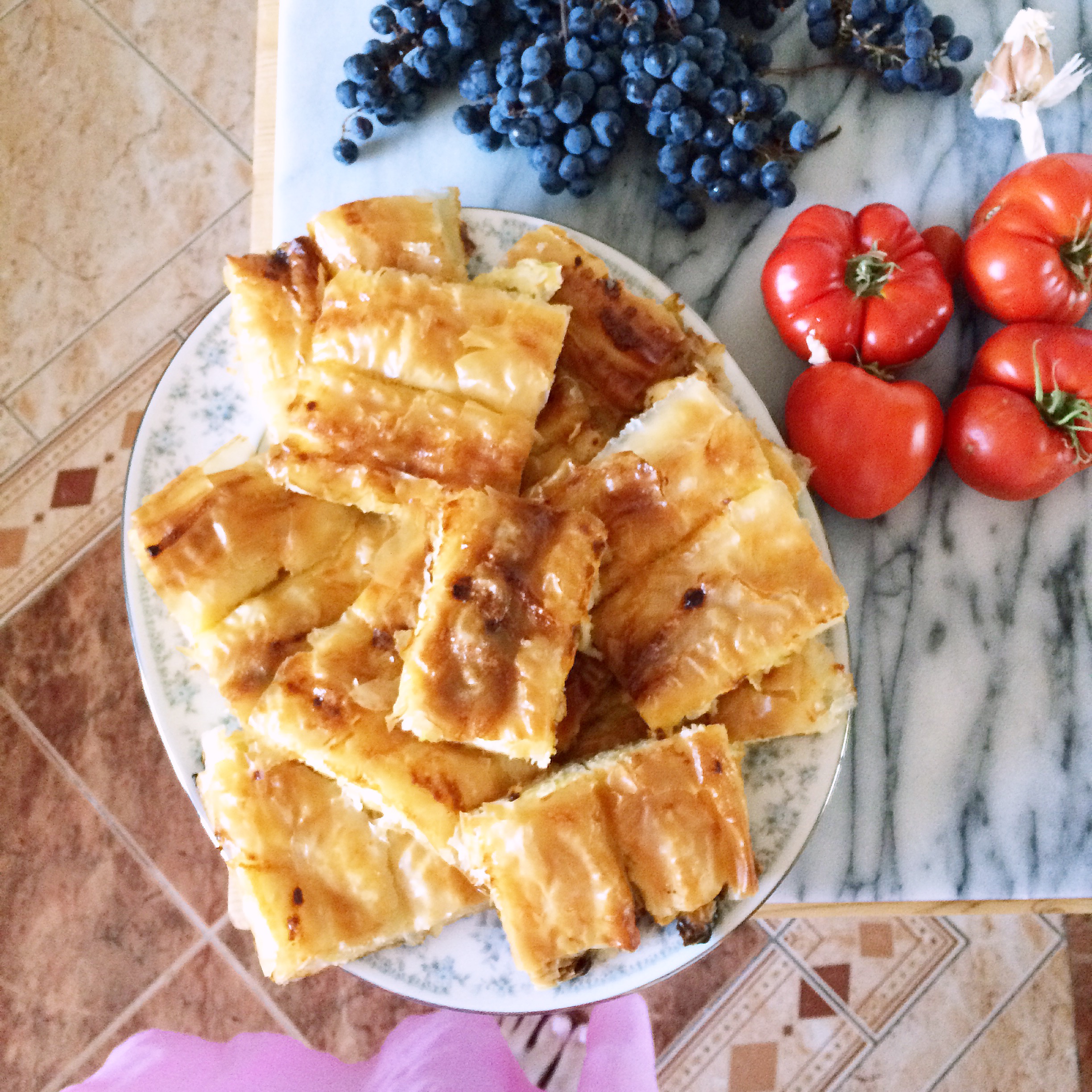
Amanda has written a cookbook
What were your favorite things about Zagreb?
My husband’s favorites were:
1) Nighttime walks through Gornji Grad and the Kamenita Vrata when the gas lamps are all lit
2) Having a glass of Croatian wine on recommendation of Ivan Šneler on the Esplanade Terrace (Yes, we lived it up on the dollar while we could!)
3) Walking from Trg Europa all the way up to Strossmeyer during Advent u Zagrebu, drinking kuhano vino (mulled wine) along the way.
Mine are:
1) The incredible daily markets (also including the antique market in Britanac)
2) Zagreb in the spring, especially during Easter week
3) The coffee and cafe culture
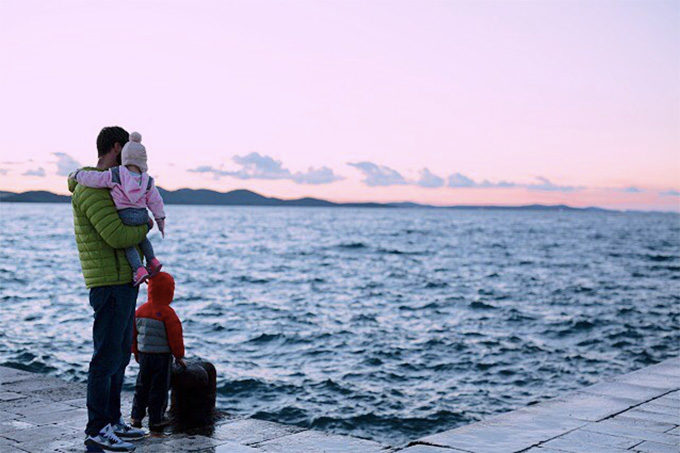
Cameron with the kids
What did you miss whilst you were living in Zagreb?
We missed our family and friends, our church community, Fourth of July, and taking our children to pumpkin patches and hay rides in the Fall. We missed little things like being able to park without spending an hour looking for a spot (ha!) and doing things with ease in our own language.
What do you miss from Croatia now you are back home in the U.S.?
We miss our friends and neighbors, waking up to the Šestine church bells, Zagreb’s markets and the amazing wine (Tomac Amfora, Coronica Grabar, Vuina Crljenak Štafileo, Fakin Istarska Malvasija, Krauthaker MERCS, Stina Plavac Mali Majstor, just to name a few…) What I wouldn’t give for a smokehouse burger from Submarine Burger!!
I miss seeing people sitting outside together, spending hours drinking a single cup of coffee, leisurely enjoying being engaged in conversation instead of staring at a computer or phone. I miss seeing flowers everywhere — Zagreb’s parks, medians, trgs, and yards are so beautiful with magnolias, fruit trees, and bazga blooming in the spring, roses through the summer, and hardwood trees changing color in the autumn.
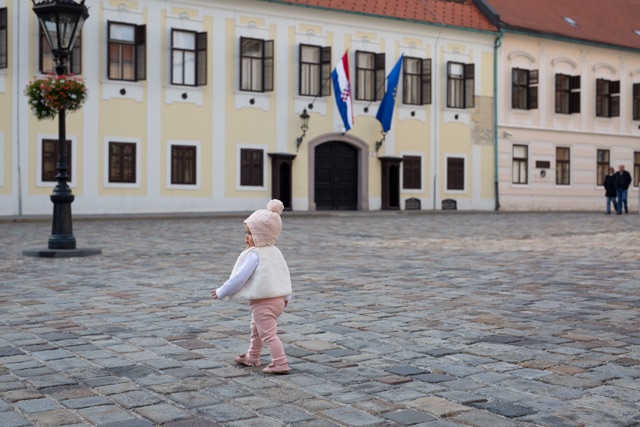
Zagreb
I miss the slow pace and the olive groves on the coast. My husband and I dream of buying a centuries-old broken down stone house on Pag or in Istria, restoring it ourselves, and growing a vineyard and olive grove.
The Croatians we got to know well (and those we regularly interacted with) are amazing people. We love that they have a sense of humor, know how to enjoy life and don’t take themselves too seriously. While it takes time and a good deal of effort to become friends with a Croat, once that happens, you are really friends and feel like family.
We will be thankful for the rest of our lives that we had the opportunity to live in Croatia, and will miss it until we return.

Eating palacinke
In December 2019, Amanda released her cookbook titled ‘Our Table in Croatia’. It is more than just a cookbook as it documents her adventure through Croatia with over 100 delicious recipes covering all seasons.
The book transports readers through the country with stunning photography and personal cultural stories as told by Amanda and her family, embracing the people, land, food and wine.
The book is available on Amazon here.

